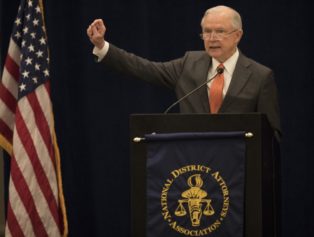The case of Pfc. Bradley Manning, the intelligence analyst in Iraq accused of leaking huge amounts of classified information to Julian Assange and WikiLeaks, may never see a trial if the prosecution accepts a plea deal offered yesterday by Manning’s lawyers.
Manning is facing life in prison without parole if convicted on all charges, which include aiding the enemy. But in the plea deal, Manning would spend 20 years in prison.
The trial, which was about to begin, has been postponed until at least June 3 to allow consideration of what classified information may be used. It is expected to take about six weeks.
Manning is accused of releasing the largest unauthorized disclosure of confidential documents in U.S. history — a bounty that includes 250,000 diplomatic cables, field reports from the wars in Afghanistan and Iraq, video footage of an American helicopter gunship killing two Reuters journalists in Iraq and government assessments of the detainees at Guantánamo Bay, Cuba, according to The New York Times.
The Manning prosecution seems to represent the U.S. government’s most serious attempt to punish WikiLeaks founder Julian Assange by association. Assange has drawn the eyes of the international media over the past six months to London, where he is stashed away in the Ecuadorian embassy.
In a drama that has pulled in an international cast, Sweden wants to question Assange about an alleged sexual assault and wants Britain to extradite him. But Ecuador has granted him asylum. Assange believes the whole case is an elaborate ploy to have him sent to the U.S., where he may be punished for publishing the millions of documents, many of which have thoroughly embarrassed American officials.
Manning’s primary defense appears to be that the materials leaked to Assange were relatively low-grade and outdated information that wouldn’t damage U.S. national security.
But a question asked by the judge, Col. Denise Lind, highlighted the potential hypocrisies in the government’s case. She asked the prosecutor whether Manning would face the same charges if he had leaked the documents to The New York Times rather than to WikiLeaks.
“Yes, ma’am,” answered the prosecutor, Capt. Angel Overgaard.
But that’s a problematic answer, considering that The New York Times and other media published hundreds of the documents Manning is accused of leaking, and newspapers publish many other leaked government documents. According to media advocates, prosecuting someone for such a leak would be a dangerous precedent for news organizations.

